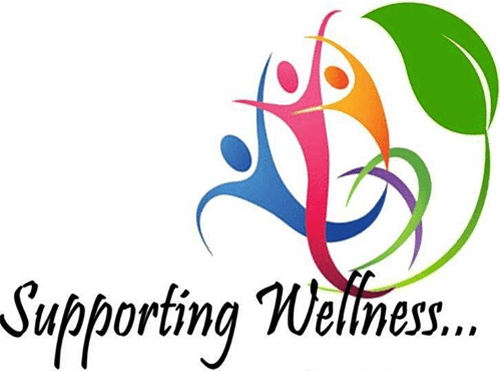ADHD can be diagnosed at any age. While we’re used to hearing about ADHD assessments for kids, these evaluations can be just as important for adults.
We can only imagine how frustrating it can be to live with undiagnosed ADHD. It might feel like a constant battle with managing your time, staying focused, and avoiding impulsive decisions.
These challenges can impact your relationships, careers, and everyday life in ways that are hard to explain if you don’t know what causes them. And yet, less than two out of ten adults with ADHD actually know they have it.1
Without that awareness, people often struggle in silence, feeling like something’s off but not knowing why. Getting assessed can be the key to understanding those challenges and finding ways to manage them.
In this guide, we’ll cover ADHD in adulthood – from what an assessment entails to the treatment options that can help. The more you know, the better equipped you are to live a balanced, fulfilling life.
What is ADHD in Adulthood?
ADHD isn’t just a childhood condition. Over half of ADHD cases still have it as adults, even though we used to think kids would grow out of it.2
But note that adult ADHD often looks different. Instead of the hyperactivity seen in kids, adults might struggle more with focusing and staying organized.
Common signs of ADHD in adults include difficulty concentrating, forgetfulness, and impulsive behaviour. These symptoms can make everyday tasks challenging, and managing emotions might feel overwhelming.
Knowing what ADHD looks like in adulthood is a powerful first step to understanding the struggles and finding ways to manage them.
ADHD Assessment in Adulthood
An adult ADHD assessment helps identify whether the symptoms you’re having are related to ADHD. Here’s what an ADHD assessment in adulthood typically involves:
● Initial Screening: Questionnaires and self-assessments gather early information about symptoms.
● Clinical Interview: A psychologist or psychiatrist conducts a detailed interview to explore the person’s history, current challenges, and overall mental health.
● Symptom Observation Across Settings: Symptoms are examined in different parts of life – work, home, and social situations – to confirm their impact in multiple areas.
● Input from Family or Friends: Having close family or friends provides insights that can confirm symptoms and fill in details about the person’s background.
● Ruling Out Other Conditions: The assessment also checks for other conditions, like anxiety or depression, that could be causing similar symptoms.
It’s also worth noting that ADHD can show up differently based on gender. For example, ADHD in girls and women often has more inattentive symptoms, while boys and men may show more hyperactive traits. These differences can be significant for making an accurate diagnosis.
Why Getting an ADHD Assessment Can Be Helpful for Adults
Getting an ADHD assessment as an adult can provide some clarity and relief. It explains long-standing struggles and gives people a way forward with practical support. An assessment can benefit you for the following reasons:
● Better Physical Health: Mental health goes along with physical health3, so understanding ADHD can lower stress and lead to healthier ways of managing symptoms.
● Validation of Experiences: A diagnosis confirms that these challenges are real and aren’t due to personal failings, which can be incredibly relieving.
● Customized Treatment Options: An assessment opens the door to targeted treatments, like therapy or coaching, that can address more specific issues.
● Stronger Relationships: Awareness of ADHD’s impact can improve the way you communicate with your loved ones and strengthen these personal connections.
An ADHD assessment can be empowering. It gives people the tools to manage ADHD in ways that make daily life easier, giving them more confidence and peace of mind.
Treatment Options for ADHD in Adulthood
Once you know that you have ADHD, there are several ways to manage it. Treatments can be tailored to help you feel more in control of your life. Among the common options are:
● Medication: Stimulant medications can help improve focus. Non-stimulant options are available for those who prefer them.
● Cognitive Behavioural Therapy (CBT): CBT teaches techniques for organization, time management, and emotional regulation.
● Mindfulness-Based Therapy: Mindfulness practices that improve focus, manage stress, and build emotional control.
● Lifestyle Changes: Exercise, a balanced diet, and getting good sleep can make a real difference in managing your symptoms.
● Support Groups and Counselling: Connecting with others in similar situations provides valuable support and understanding.
There’s no shame in seeking treatment as an adult, just as kids and teenagers benefit from counselling when learning to manage challenges. Whether it’s medication, therapy, or making some lifestyle adjustments, treatment provides practical tools to live a fulfilling life.
Choosing the Right Treatment Plan
Finding the right treatment plan is a personal journey. Every approach has its pros and cons, so it’s essential to consider what works best for your lifestyle and goals. A mental health professional can help guide this process, tailoring treatment to match your unique needs.
Combining treatments can often be the most effective, like pairing medication with therapy, for example, or using lifestyle changes alongside counselling. It may take some time to find the right mix, but the results are worth it.
ADHD Management for Adults in Calgary
Understanding ADHD in adulthood can be a tough pill to swallow – but it’s truly life-changing. When you know the cause of your challenges, you’re better equipped to deal with them.
Awareness and proactive support help you regain control and reach new levels of personal and professional success. At Supporting Wellness, we’re here to guide you along the way. Our mission is to give you a thorough understanding of ADHD and its impact, empowering you to reach your full potential.
We help children and adults manage the challenges of ADHD through personalized assessments and targeted interventions. It all starts with a diagnosis, which confirms that these challenges are real and can be managed.
Reach out to us today and take the first step toward a better tomorrow.
References:
- Adult ADHD: Underdiagnosis of a Treatable Condition,
https://pmc.ncbi.nlm.nih.gov/articles/PMC9884156/ ↩︎ - Kids with ADHD May Still Have Symptoms as Adults,
https://www.scientificamerican.com/article/kids-with-adhd-may-still-have-symptoms-as-adults/
How Does Mental Health Affect Physical Health? ↩︎ - https://www.webmd.com/mental-health/how-does-mental-health-affect-physical-health ↩︎

